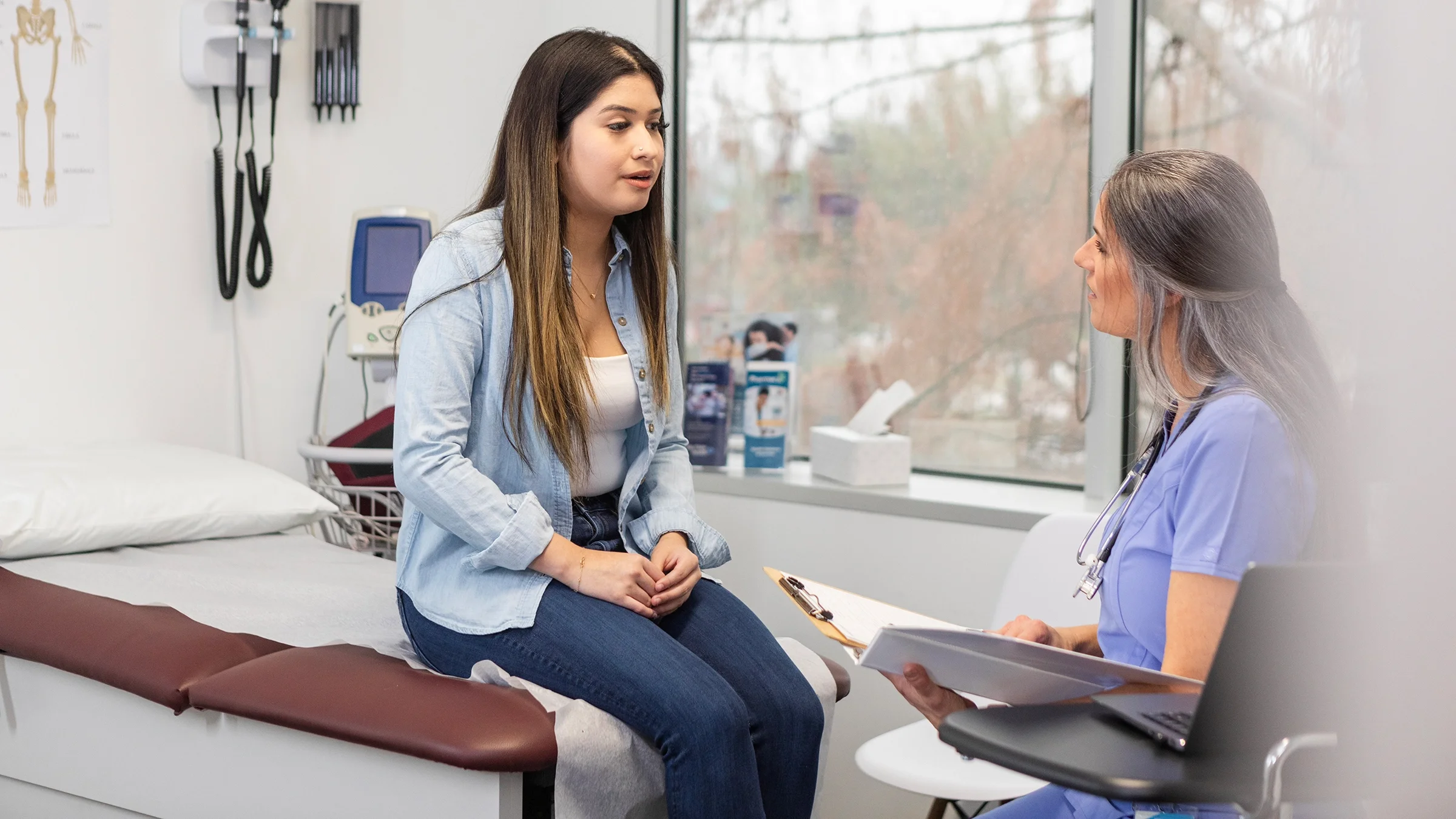Key takeaways:
Drinking alcohol can make it harder for you to get pregnant.
Alcohol can decrease the number and quality of eggs, especially when considering IVF.
Alcohol likely affects fertility and can have consequences for the fetus. So it’s best to stop drinking when you know you want to become pregnant.
Around the world, as many as 1 in 6 adults experience infertility. If you’re struggling with fertility, you may be curious as to what steps you can take to improve your chances of conceiving.
One of the more common questions is: Does drinking alcohol affect your ability to become pregnant? Let’s take a look.
How does alcohol affect egg quality?
A number of studies have looked at the impact of alcohol on fertility. Studies in animals have demonstrated that long-term alcohol use can prevent healthy maturation of eggs or oocytes.
Search and compare options
But in humans, more studies have looked at how alcohol might affect fertility, not always specifically egg quality. One human study suggests that alcohol use can cause changes in the way that eggs mature. But, on the other hand, a separate study didn’t find that social drinking affects egg development. More research is needed to be sure.
Does it affect the egg collection process?
In women seeking fertility treatments, alcohol can decrease the number of oocytes that are harvested — as much as 13% fewer. It can also make it harder to achieve a successful pregnancy. This relationship may be dependent on the amount of alcohol consumed. A more recent study found that women who are social drinkers (no more than one or two drinks a week) had only slightly fewer eggs of slightly less quality.
How does alcohol affect your overall chances of getting pregnant?
While small amounts of alcohol may not have a significant impact on egg quality and number, it can decrease your chance of becoming pregnant. But it’s not exactly clear why. Scientists have tried to better understand the factors that contribute to fertility, but these studies are far from perfect. Many studies are observational, meaning that they watch or observe people’s habits over time. This can make it difficult to understand confounding factors like caffeine or tobacco use. In other words, it can be hard to determine if other habits besides alcohol consumption may also be affecting infertility.
There’s data to suggest, however, that the more alcohol that’s consumed, the harder it is to get pregnant. For women undergoing fertility treatments, they were 7% less likely to become pregnant if they drank more than 84 g of alcohol a week (about 6 drinks a week). In another study, if both partners drank more than four drinks a week, their chance of successful fertility treatment decreased by 21%. Let’s take a look at why that is.
How else does alcohol affect fertility?
Alcohol can affect the body in a number of ways and that can make it harder for someone to become pregnant and carry to term. It’s important to note that there may be ways that researchers don’t fully recognize or understand yet.
Hormonal changes
Alcohol has been shown to change the balance of hormones in women. It can cause irregular periods, which can make it harder to determine when ovulation is occurring. You have the best chance of becoming pregnant when you’re ovulating (the time that an egg is released from the ovary).
The nuts and bolts of fertility. Learn about testing, treatments, and more.
Age and egg quality. Is there such a thing as “too old” to have a baby?
Quitting drinking. There are many reasons to consider stopping drinking, but how do you go about it? These tips can help.
If an egg is fertilized by sperm and becomes an embryo, it still needs to grow and implant (or attach) to the uterus. Hormonal changes caused by alcohol consumption can make it harder for the embryo to mature and implant.
Miscarriage
Multiple studies have shown that drinking alcohol during pregnancy increases risk of miscarriage. Evidence suggests that the more alcohol that’s consumed, the higher the chance of miscarrying.
Can you drink alcohol while trying to conceive?
As mentioned, it can be harder to get pregnant if you’re drinking alcohol. Your hormone levels may make it harder to predict your ovulating window and harder for an embryo to implant. All of these factors can decrease your chances for a successful pregnancy. To give yourself the best shot of conceiving, it’s best to stop drinking when you want to become pregnant.
Frequently asked questions
There’s no amount of alcohol during pregnancy that’s known to be safe. It may be several weeks following conception before you even realize you’re pregnant. So it’s best to stop drinking if you want to become pregnant.
As mentioned above, experts think alcohol consumption during IVF can decrease your fertility and chance of conceiving.
While there are no specific recommendations to improve egg quality, optimizing your own health can help improve your fertility. This can mean eating a healthy diet and getting adequate sleep. It also means avoiding drinking and smoking.
There’s no amount of alcohol during pregnancy that’s known to be safe. It may be several weeks following conception before you even realize you’re pregnant. So it’s best to stop drinking if you want to become pregnant.
As mentioned above, experts think alcohol consumption during IVF can decrease your fertility and chance of conceiving.
While there are no specific recommendations to improve egg quality, optimizing your own health can help improve your fertility. This can mean eating a healthy diet and getting adequate sleep. It also means avoiding drinking and smoking.
The bottom line
Research suggests that alcohol may contribute to infertility. While some alcohol may not greatly affect the number and quality of eggs, it can make it harder for you to become pregnant and carry a baby to term. Experts agree that no amount of alcohol is safe. So if you’re thinking about starting a family or fertility treatments, it’s best to stop drinking as soon as possible.

Why trust our experts?



References
American Society for Reproductive Medicine. (2017). Optimizing natural fertility.
Anwar, M. Y., et al. (2021). The association between alcohol intake and fecundability during menstrual cycle phases. Human Reproduction.
Cebral, E., et al. (1999). Deleterious effects of chronic moderate alcohol intake by female mice on preimplantation embryo growth in vitro. Alcohol and Alcoholism.
Eggert, J. et al. (2004). Effects of alcohol consumption on female fertility during an 18-year period. Fertility and Sterility.
Fan, D., et al. (2017). Female alcohol consumption and fecundability: A systematic review and dose-response meta-analysis. Scientific Reports.
Klonoff-Cohen, H., et al. (2003). Effects of maternal and paternal alcohol consumption on the success rates of in vitro fertilization and gamete intrafallopian transfer. Fertility and Sterility.
Ozbakir, B., et al. (2021). Should fertile women quit drinking alcohol to produce better quality oocytes? Zygote.
Pan American Health Organization. (2023). 1 in 6 people globally affected by infertility: WHO.
Rao, W., et al. (2022). The association between caffeine and alcohol consumption and IVF/ICSI outcomes: A systematic review and dose-response meta-analysis. Acta Obstetricia et Gynecologica Scandinavica.
Rossi, B. V., et al. (2011). Effect of alcohol consumption on in vitro fertilization. Obstetrics and Gynecology.
Sundermann, A. C., et al. (2019). Alcohol use in pregnancy and miscarriage: A systematic review and meta-analysis. Alcoholism, Clinical and Experimental Research.














